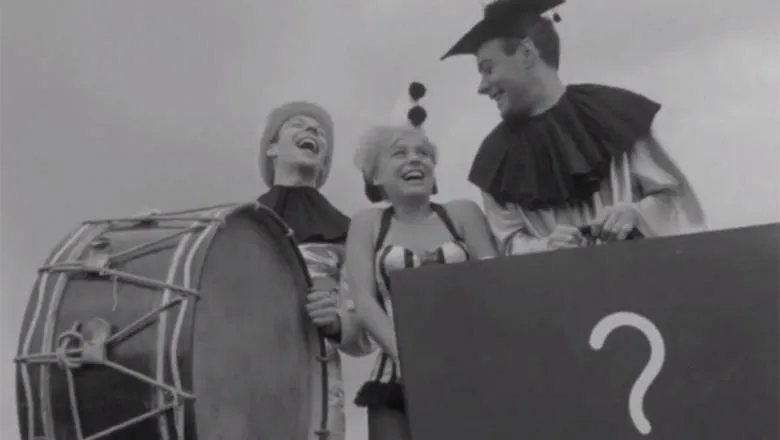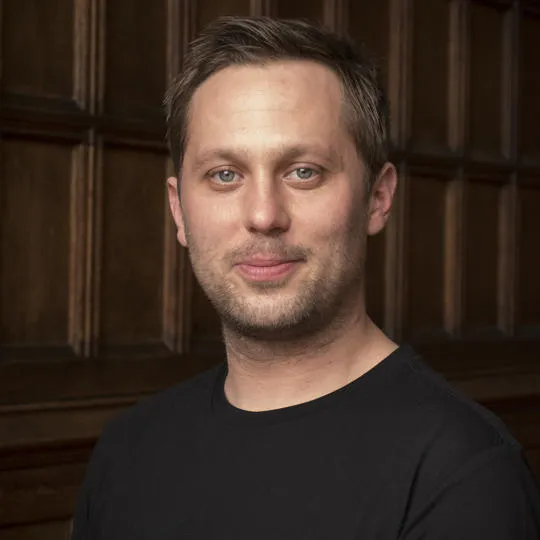20 June 2019
The Fun Palace: how can urban planning bring more pleasure to people's lives?
According to Dr Luke Dickens, Joan Littlewood’s vision for a Fun Palace foresaw the sought-after elements of urban planning that are emerging today.

The Fun Palace was to be a space where the community could come together to celebrate arts, science and culture. A space where they could play with the technological advances of the era, or simply have a few drinks and watch football on the big screen.
Conceived and developed by Joan Littlewood, in collaboration with architect Cedric Price, the Fun Palace was inspired by the Thames-side pleasure gardens of the 18th and 19th centuries. It was going to repurpose an unused and unloved six-acre riverside area on the Isle of Dogs, east London.
Although the original design for a Fun Palace was never realised, according to Dr Luke Dickens from the Department of Geography, King’s College London, Littlewood’s vision foresaw the sought-after elements of urban planning that are emerging today, such as sustainability and smart cities.
From Joan Littlewood’s story to shaping future cities
Joan Littlewood, the English theatre director from the early 20th century, is a staple name in the industry. Yet, not as much is known about her achievements as an urban planner and her strong, utopian vision for the future of London.
“Littlewood was not just a theatre director – she was an urbanist and town planner using theatre to better inform city design. Her story helps us to explore the pleasures of London life during her lifetime and to reflect on how pleasure might feature in urban experiences today,” said Dickens.
“You can clearly see the ways in which utopian urban futures can be brought into being and the role of ‘everyday’ experts in shaping the future of cities in more pleasurable and playful ways.”
Dicken’s research for the past three years, partly funded by a British Academy grant, has delved into the concept of utopian urban living, centred around reviving Littlewood’s work, but extending beyond the original concept.
He is also working with Dr Tim Edensor from Manchester Metropolitan University to investigate the Fifth Dimension – a futuristic psychedelic house aimed at stimulating the senses. Located on the West coast of Scotland, the Fifth Dimension is the second Fun Palace design of media artist, Keith Albarn, who worked closely with Littlewood.
Visualising the research
Dicken’s archival research shows a history of pleasure along the Thames River in London and a glimpse of what fun might have looked like had we not lost of the idea of ‘pleasure’. By looking at the work of Littlewood and Albarn, he explores ideas of place, belonging and citizenship within urban cultures, particularly amongst youth.
“Often young people are overlooked for their contributions and experiences in shaping utopian visions. As a communist, Littlewood believed all people, including the working class and the youth, should have access to pleasure and fun.”
Dickens’ research uses visual and participatory methods, community collaborations and public engagement. This includes piecing together segments of Littlewood’s experimental film, ‘Pleasure’ (1964) – a film thought to have been lost – which Littlewood used to promote her idea of the Fun Palace.
Segments of the film will be featured in his exhibit at the British Academy Summer Showcase.
The British Academy Summer Showcase
The British Academy Summer Showcase, held on 21-22 June, offers everyone the chance to delve into, ask questions and be inspired by research and ideas that are shaping the world. The aim is to demystify university study and make the case for the importance of these subjects for us all.
Dicken’s exhibit, titled ‘Did Londoners have more fun in the past?’ will include live performances inspired by the script of ‘Pleasure’ and performed by members of the youth theatre, Theatre Royal Stratford East, where Littlewood was founding artistic director.

